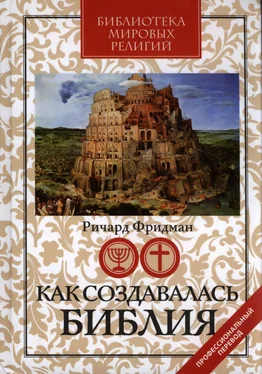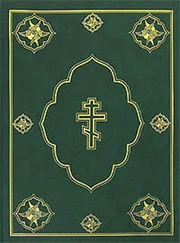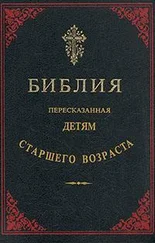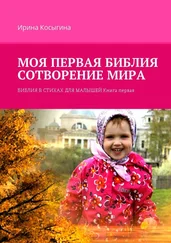Ishida, Tomoo, ed. Studies in the Period of David and Solomon and Other Essays. Tokyo: Yamakawa-Shuppansha, 1982.
Jenks, Alan W. The Elohist and North Israelite Traditions. Decatur, Ga.: Scholars Press, 1977.
Kapelrud, A. S. “The Date of the Priestly Code.” Annual of the Swedish Theological Institute III (1964): 58–64.
Kaufmann, Yehezkel. The Religion of Israel. Trans, and ed. Moshe Greenberg. Chicago: University of Chicago Press, 1960. Hebrew edition, 1937.
Kennedy, A. R.S. “Tabernacle.” Hastings Dictionary of the Bible IV: 653–668.
Knight, Douglas A. Rediscovering the Traditions of Israel. Society of Biblical Literature Dissertation Series. Decatur, Ga.: Scholars Press, 1973.
Levenson, Jon. “Who Inserted the Book of the Torah?” Harvard Theological Review 68 (1975): 203–233.
_, and Halpern, Baruch, eds. Traditions in Transformation: Turning-Points in Biblical Faith. Essays presented to Frank Moore Cross. Winona Lake, Ind.: Eisenbrauns, 1981.
Liver, Jacob. “Korah, Dathan, and Abiram.” S cripta Hieroso-lymitana 8. Jerusalem: Hebrew University, 1961.
Lohfink, Norbert. “Auslegung deuteronomischer Texte, IV”. Bibel und Leben 5(1964).
Lundbom, Jack R. “The Lawbook of the Josianic Reform.” Catholic Biblical Quarterly 38 (1976): 293–302.
Malamat, Abraham. “The Twilight of Judah: In the Egyptian-Babylonian Maelstrom.” Vetus Testamentum Supplements 28 (1975): 123–145.
_ “Origins and the Formative Period.” In H. H. Ben-Sasson, A History of the Jewish People , pp. 3-87. Cambridge, Mass.: Harvard University Press, 1976.
May, Herbert, ed. Oxford Bible Atlas, 3rd ed. New York: Oxford, 1981.
McBride, Samuel Dean. “The Deuteronomic Name Theology.” Dissertation, Harvard University, 1969.
McCarthy, D. J. Old Testament Covenant. Richmond: John Knox, 1972.
_ Treaty and Covenant. Rome: Pontifical Biblical Institute, 1963.
McEvenue, Sean. The Narrative Style of the Priestly Writer. Rome: Pontifical Biblical Institute, 1971.
McKenzie, Steven L. The Chroniclers Use of the Deuteronomistic History. Harvard Semitic Monographs. Decatur, Ga.: Scholars Press, 1984.
Mendenhall, G. E. Law and Covenant in Israel and the Ancient Near East. Pittsburgh: Biblical Colloquium, 1955.
Milgrom, Jacob. Cult and Conscience. Leiden: Brill, 1976.
_ Studies in Levitical Terminology, I. Berkeley: University of California Press, 1970.
Moran, W. L. “The Literary Connection Between Lev 11:13–19 and Deut 14:12–28.” Catholic Biblical Quarterly 28 (1966): 271–277.
Mowinckel, S. Erwagungen zur Pentateuch Quellenfrage. Trondheim: Universitetsforlaget, 1964.
Myers, Jacob М. E zra/Nehemiah, The Anchor Bible. Garden City, N.Y.: Doubleday, 1965.
Nelson, Richard. The Double Redaction of the Deuteronomistic History. JSOT Supplement Series. Sheffield, 1981.
Nicholson, E.W. Deuteronomy and Tradition. Philadelphia: Fortress, 1967.
_ Preaching to the Exiles. Oxford: Blackwell, 1970.
Noth, Martin. Exodus. Philadelphia: Westminster, 1962.
_ A History of Pentateuchal Traditions. Englewood Cliffs, N.J.: Prentice-Hall, 1972. German edition, 1948.
_ The History of Israel. New York: Harper and Row, 1960. German edition, 1958.
_ The Laws in the Pentateuch. Edinburgh: Oliver and Boyd, 1966.
_ Leviticus. Philadelphia: Westminster, 1965.
_ Numbers . Philadelphia: Westminster, 1968.
_ The Old Testament World. Philadelphia: Fortress, 1966. German edition, 1964.
_ Uberlieferungsgeschichtliche Studien. Tubingen: Max Niemeyer Verlag, 1957. Original edition, 1943. Pp. 1-110 in English translation as The Deuteronomistic History. JSOT Supplement Series. Sheffield, 1981.
Perdue, L.G., and Kovacs, B.W., eds. A Prophet to the Nations: Essays in Jeremiah Studies. Winona Lake, Ind.: Eisenbrauns, 1984.
Polzin, Robert, Late Biblical Hebrew: Toward an Historical Typology of Biblical Hebrew Prose. Decatur, Ga.: Scholars Press, 1976.
Pritchard, James B., ed. Ancient Near Eastern Texts Relating to the Old Testament , 3rd ed. Princeton, 1969.
Propp, William H. “The Skin of Moses 5 Face — Transfigured or Disfigured?” Catholic Biblical Quarterly , 1987. von Rad, Gerhard. Deuteronomy: A Commentary. London: SCM, 1966.
_ Genesis. Philadelphia: Westminster, 1961.
_ Der Priesterschrift im Hexateuch (Berlin: W. Kohlhammer, 1934).
_ The Problem of the Hexateuch. New York: McGraw-Hill, 1966.
Rendsburg, G. “Late Biblical Hebrew and the Date of P.” Journal of the Ancient Near East Society 12 (1980): 65–80.
Rendtorff, Rolf. Das iiberlieferungsgeschichtliche Problem des Pentateuch (Beihefte zur Zeitschrift fur die alttestamentiche Wissen-schaft 147. Berlin/New York: Walter de Gruyter, 1977.
Rogerson, John. Old Testament Criticism in the Nineteenth Century: England and Germany. London: SPCK, 1984.
Rowley, H. H. The Old Testament and Modern Study. New York: Oxford, 1951.
Sarna, Nahum. “Hebrew and Bible Studies in Medieval Spain.” The Sephardic Heritage, vol. 1. London: Vallentine, Mitchell, 1971.
van Seters, J. Abraham in History and Tradition. New Haven: Yale University Press, 1975.
Shiloh, Yigal. Excavations at the City of David, vol. 1. Jerusalem: Institute of Archeology, Hebrew University, 1984.
Speiser, E.A. Genesis, The Anchor Bible. Garden City, N.Y.: Doubleday, 1964.
Spinoza, Benedict. Tractatus theologico-politicus. 1670.
Tadmor, Hayim. “The Period of the First Temple, the Babylonian Exile and the Restoration.” In H. H. Ben-Sasson, A History of the Jewish People, pp. 91-182. Cambridge, Mass.: Harvard University Press, 1976.
Thompson, R. J. Moses and the Law in a Century of Criticism Since Graf Vetus Testamentum Supplements 19. Leiden: Brill, 1970.
Tsevat, Matitiahu. “Studies in the Book of Samuel, III.” Hebrew Union College Annual 34 (1963): 71–82.
de Vaux, Roland. Ancient Israel. New York: McGraw-Hill, 1961.
Weinfeld, Moshe. “The Covenant of Grant in the Old Testament and in the Ancient Near East.” Journal of the American Oriental Society 90 (1970): 184–203.
_ Deuteronomy and the Deuteronomic School. New York: Oxford University Press, 1972.
_ “Getting at the Roots of Wellhausen’s Understanding of the Law of Israel on the 100th Anniversary of the Prolegomena. " Report No. 14/79. Jerusalem: Institute for Advanced Studies, Hebrew University, 1979.
_ “Jeremiah and the Spiritual Metamorphosis of Israel.”
Z eitschrift fur die alttestamentliche Wissenschaft 88 (1976): 17–56.
Wellhausen, Julius. Prolegomena zur Geschichte Israels. Edinburgh, 1885. Reprinted, Gloucester, Mass., Peter Smith, 1973. German edition, 1883.
de Wette, W. M. L. Dissertatio critica qua a prioribus Deuteronomium Pentateuchi libris diversam, alius cuiusdam recentioris auctoris opus esse monstratur. 1805. Reprinted in Opuscula Theologica. Berlin, 1830.
Williamson, H. G. M. Israel in the Books of Chronicles. Cambridge University Press, 1977.
Wolff, Hans Walter. “Das Kerygma des deuteronomistischen Geschichtswerks.” Z eitschrift fur die alttestamentliche Wissenschaft 73 (1961): 171–186.
Wright, George Ernest, ed. The Bible and the Ancient Near East. Garden City: N.Y.: Doubleday, 1961.
Читать дальше









![Библия - Библия [Учебное издание]](/books/433190/bibliya-bibliya-uchebnoe-izdanie-thumb.webp)

